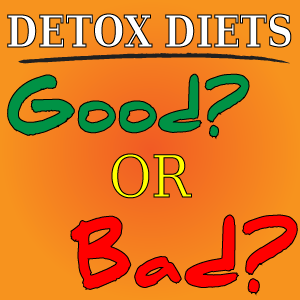 BY EMMET RUSHE: It’s January and that can mean only one thing…
BY EMMET RUSHE: It’s January and that can mean only one thing…
It’s Detox time.
Well, if you believed every advertisement that has been popping up on Facebook, Google and any other media platform, you would think that you actually needed to detox.
There are thousands of these that pop up every January; lemon detox, 3 day detox, 7 day detox, Teatox and my personal favourite” Booteatox”, named because it apparently gives you a better bootea…
These diets are all based on the same premise.
The story goes like this; After Christmas, due to all the excess food and drink that we have taken in, our bodies are apparently full of ‘toxins’ that we need to get rid of. The only way we could possibly do this is to buy detox products that are made to help with the removal of these ‘toxins’.
What you can eat on these diets varies, depending on the type of detox you are following.
There are many of them. Some involve fasting, or just drinking liquids. Others allow some foods, like fruits and vegetables. Typically they are short diets, but one thing is for certain, they are not a way of eating that you can stick with in the long run.
Many of these detox diets are also marketing themselves as weight loss products.
Along with the ‘toxins’ that you will be expelling, you will also get rid of any unwanted weight that you may have gained over the holiday season.
The simple reason for this is that you are drastically reducing calories through the products detoxing methods.
When you reduce calories like this, you will lose weight, but like any other fad diet, once you return to normal calorie intake you will gain back any weight you may have lost.
It’s inevitable.
Another reason that some of these detox products claim to help with weight loss is they can have the herbal laxative Senna in their ingredients.
If taken for long periods of time, Senna can cause vomiting, diarrhoea, electrolyte imbalance, and dehydration.
But surely there has to be some sort of truth to these products?
They can’t all be fake, can they?
A group of more than 300 young UK scientists and engineers, who investigated the evidence behind claims made for products and diets, have started a public awareness campaign by publishing a dossier that shows the word “detox” has no meaning outside of the clinical treatment of drug addiction and poisoning.
The Detox Dossier investigators found that:
No two companies had the same definition for “detox”.
The word “detox” was used to promote a range of things from foot patches to hair straighteners, without consistent explanations of what the word means.
In most cases no evidence was presented to back up the “detox” claims on products.
In most cases, producers and retailers contacted by the young scientists were forced to admit that they were using the word “detox” instead of mundane things like “cleaning” or “brushing”.
Not only are detox diets not good for people with certain medical conditions, they can be harmful. They don’t improve blood pressure or cholesterol.
Detox diets have no positive effect on the heart.
For people with diabetes, they may be quite dangerous.
Any diet that severely restricts what you eat, could lead to dangerously low blood sugar if you take medicine for diabetes.
So, what is the best ‘Detox Diet’ to choose?
The truth is, none of them.
Your body is an expert at getting rid of toxins, no matter what you eat.
Toxins don’t build up in your liver, kidneys or any other part of your body, and you’re not going to get rid of them with the latest detox wonder product.
Our liver and kidneys are all we will ever need to detox and if you want to give them a helping hand, all you have to do is cut down on processed foods, reduce your alcohol intake and increase your water intake.
Simple as that ☺
#TrainSmart
For details on Personal Training, Semi Private Training and group training, please contact me through the link below. https://www.facebook.com/pages/Rushe-Fitness/120518884715118
Tags:






